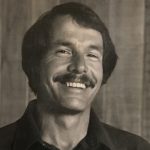A Non-Negotiable for Young Life Leaders
In Young Life we use the term incarnational a lot, even referring to ourselves as an incarnational ministry. But what do we really mean when we say this?
First, let’s make sure we’re clear on the definition of the word. Incarnation comes from the Latin incarnationem, meaning “the act of being made flesh.” As regards Christian theology, it’s the “embodiment of God in the person of Jesus.” In referring to the dual nature of Jesus as fully divine and fully human, Young Life leaders often explain this concept as “God with skin on.” And, there are several verses that speak to this mysterious action God took upon our behalf.
INTO THE NEIGHBORHOOD
The Gospel writer John, who physically walked with Jesus for three years as one of his 12 chosen disciples, who witnessed him do all manner of human things — eating, sleeping, laughing, crying — wrote this about his Lord later in life:
“The Word became flesh and made his dwelling among us. We have seen his glory, the glory of the one and only Son, who came from the Father, full of grace and truth” (John 1:14).
The Message reinterprets John’s words this way:
“The Word became flesh and blood, and moved into the neighborhood. We saw the glory with our own eyes, the one-of-a-kind glory, like Father, like Son, generous inside and out, true from start to finish.”
In Young Life we too move into the neighborhood. Yes, we live in the communities where we do ministry, but it’s more intentional than that. We move into adolescents’ neighborhoods when we go to them on their turf. More on that to come.
In his letter to the Philippians, the apostle Paul described the incarnation by quoting what many believe was a first-century hymn. He pointed his brothers and sisters to imitate the attitude of Jesus …
“Who, being in very nature God, did not consider equality with God something to be grasped; but made himself nothing, taking the very nature of a servant, being made in human likeness. And being found in appearance as a man, he humbled himself and became obedient to death—even death on a cross!” (Philippians 2:6-8)
The Son of God didn’t cling to the luxuries of heaven when he had every right to do so. Although a king, he didn’t seek to be served in a place removed from sin, pain, and death. Instead, he left the glory of the Father’s presence and came to a hurting world. He sought to let go of all heavenly rewards to save a rebellious creation. As the hymn says, “He made himself nothing.”
What can we non-kings and queens apply from this passage? To quote Paul, it’s the idea of “taking the very nature of a servant.” Incarnational ministry is unselfish. It’s consciously renouncing anything we might claim as our rights, and leaving our comfort zone to enter the uncomfortable world of the middle school, high school, or college campus. The goal? Simply to reach and serve our young friends.
Young Life’s Director of Theology and Practice Tom Combes explains this well:
“Often we think of Young Life ministry as being ‘incarnational’ because we see ourselves as imitating the incarnation — Jesus left the heavenly realm and came into time and space as a human being, with real flesh and bones. Jesus ‘incarnated’ himself in our world so, similarly, Young Life staff and volunteers leave their ‘adult world’ and enter into the world of adolescents, being ‘incarnated’ in their world.”
In no way does this imply that we’re on equal par with Jesus. Rather, we’re simply seeking to follow his example.

HOW YOUNG LIFE BECAME INCARNATIONAL
“Incarnational ministry is not new to Young Life,” Tom continues, “Nor is it unique to Young Life. We did not invent this style of ministry but it has been the hallmark of our work for more than 80 years.”
However, it didn’t start from Day One!
Jim Rayburn originally modeled Young Life after the platform ministry model he’d seen his father, a traveling evangelist, use. In the early days in Texas, Jim gathered kids together in places like Gainesville, Houston, and Dallas, for tent revival meetings. Called the Young Life Campaign, the meetings provided an effective setting in which he could proclaim the gospel in a way kids understood.
But the campaigns lacked a practical means of follow-up and discipleship. Kids needed more.
Upon seeing this, Add Sewell, one of the first five Young Life staff, realized what they needed was a person. Kids longed for adults who cared enough to come alongside them and spend time learning what was important to them. Looking for a better approach with the ministry in Tyler, Texas, Sewell started showing up at football practices, where he simply hung out and kicked the football around with the kids. In the process, he developed relationships with kids, earning the right to be heard by them. It’s a method we now know as “contact work.”
It didn’t take long for other men and women to see how effective Sewell’s “just being there” was for the kids. Our theological approach to kids quickly expanded as a result of seeing kids not only profess their faith, but thrive in their walk with the Lord.
THE YOUNG LIFE DISTINCTIVE
Can we truly say, however, that incarnational ministry is a “non-negotiable for Young Life leaders” as this article’s subtitle proclaims?
Quite simply, yes! The calling to be a Young Life leader is a calling to flesh out the gospel. Leading a club, taking kids to camp, teaching kids in Campaigners are all important to be sure, but contact work is what makes Young Life “Young Life.”
Contact work is the Young Life distinctive. It’s what sets us apart from many other ministries: the slow, patient strategy of going and hanging out with kids in order to build relationships, and ultimately, to “earn the right to be heard.”
In his book Back to the Basics, 35-year Young Life staff veteran John Miller explained that we go on Christ’s behalf:
“This is why those three words in 2 Corinthians 5:20 hit me: ‘In Christ’s stead.’ Christ would like to go to the school you go to, but he has so clearly asked you to do that in his stead. He would like to go into that lunchroom; he would like to go to that game; he would like to speak at that club, but he has arranged things so that you actually go there in his place. He has placed his confidence in you, that you will represent him as he should be represented; that you will do a credible job as his personal ambassador.”
If we say we’re about life-on-life relationships with kids, that we are indeed about reaching kids on Christ’s behalf, then we must leave our places of comfort to go comfort them. We must incarnate ourselves in their world, where they reside.
Perhaps the last word on our incarnational calling should be left to another one of our first five staff, Wally Howard …
“Our message is a person. God made himself known to us through a person. And he still makes himself known through people. And that’s what Young Life’s all about.”
To learn more about Young Life’s incarnational history, check out the books Back to the Basics by John Miller, Letters to a Young Life Leader by Bob Mitchell, and Made For This: The Young Life Story by Jeff Chesemore.







